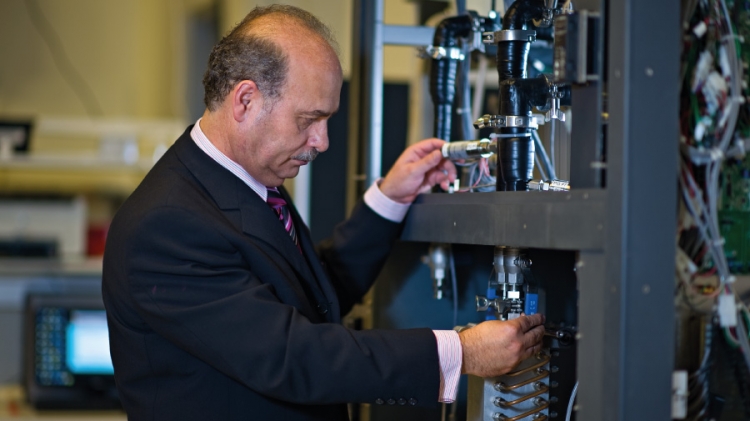
As the UAE develops, its hunger for energy grows. The country’s founding father, Sheikh Zayed, recognised the importance of energy for national development early on. And he understood that development requires the country to diversify its economy and find alternative sources of energy in addition to oil.
This insight has led current leaders to pursue nuclear power and renewable sources to meet future energy needs.
The UAE’s scant freshwater resources mean that seawater desalination is our main source of potable water. But taking the salt out of seawater is very energy-intensive, and so large-scale desalination demands reliable and economical energy sources.
Integrated water-energy solutions are essential, in other words, if we are to meet the country’s needs for growth and development in an efficient and sustainable way.
A three-day International Water Summit meeting opens Tuesday at Abu Dhabi’s National Exhibition Centre, with the Masdar Institute as the host organisation. So this seems to be a good time to report a continuing research project that links these two vital priorities, sustainable energy and water supply.
Masdar Institute is working to develop a nuclear-powered-seawater desalination concept. This idea makes good sense now that Abu Dhabi has chosen nuclear power to meet the country’s future energy needs.
Our research team aims to create and develop the blueprints for a “self-sustainable nuclear oasis”, which we refer to as 2SNO.
Central to this vision is a small modular reactor (SMR) capable of producing about 330 megawatts of electricity. This power would be used three ways: to be fed into the grid, to produce hydrogen to power a future fleet of hydrogen cars – and to desalinate seawater for drinking and industrial use. The SMR under consideration is well-suited for this task: it’s small, so construction is simplified and capital investment is minimal. It is modular, so the initial unit could be small and additional units could be added if and when the need for water and energy increased. The design is also inherently safe because of its small size and because it has passive safety features that require no human intervention even in case of a beyond-design-basis accident. Lastly, this nuclear technology poses little risk of proliferation because it has a very long fuel cycle, about 60 years. Through the lifetime of the plant, there will be no need for human access to the nuclear fuel.
Our preliminary results are very positive. They have shown that a nuclear-desalination oasis that consists of one reactor of the size described could supply about one-third (100 MW) of its electricity output to the grid and use the rest, along with some of its process heat, to produce enough hydrogen to power 280,000 light vehicles through high-temperature electrolysis of steam – and also produce enough water for about 20,000 users, through hybrid reverse osmosis and multi-stage flashing.
With our joint expertise in both areas of the related sciences – Dr Shatilla’s background in nuclear engineering and Dr Hilal’s knowledge of desalination – we are confident this project will yield a practicable potential solution for Abu Dhabi’s water and energy needs. This and other research work will help the UAE reach its sustainability goals, developing clean and renewable energy and reducing carbon emissions by swapping oil- and gas- fuelled electricity and water production for a nuclear energy model. Using nuclear energy for water, electricity and hydrogen production can also save money by freeing up more of its oil and gas for export.
Construction of a nuclear-desalination oasis could also improve water security for the UAE by mitigating the desalination process’s dependence on fossil fuels.
Lastly, this and other research projects will help contribute to the UAE’s development of local technical capability and expertise and provide the country with future valuable intellectual property.
Dr. Yousef Shatilla is the dean of academic programmes and a professor of mechanical engineering and Dr Nidal Hilal is the director of the Center of Excellence for Desalination and Water Technologies and a professor in nano-membranology and water technologies at the Masdar Institute of Science and Technology.